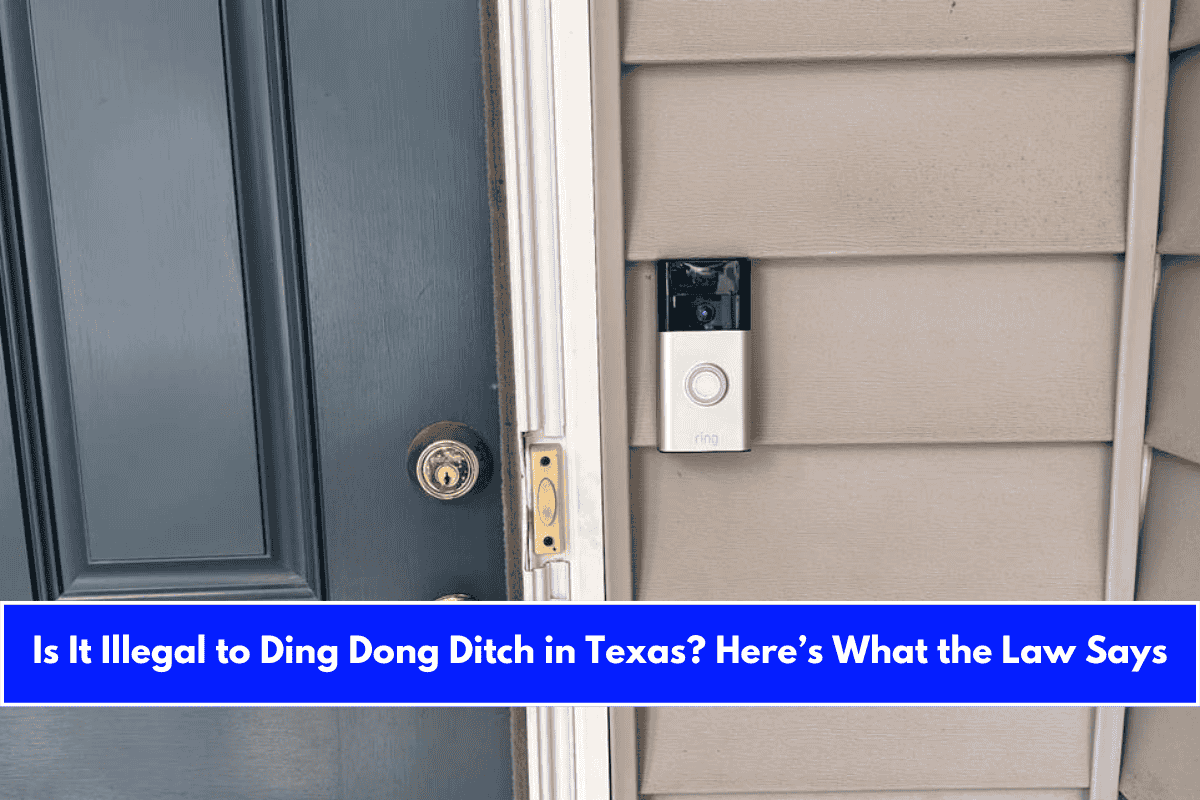Ding dong ditch-ringing someone’s doorbell and running away-is often seen as a harmless childhood prank. However, in Texas, this seemingly innocent act can carry legal consequences depending on how it’s carried out and the impact on the victim.
The Legal Status: Gray Area, But Risks Exist
There is no Texas law that specifically mentions “ding dong ditch” by name. However, the prank can cross into illegal territory under several existing statutes, particularly if it involves trespassing, harassment, property damage, or causes fear or disturbance.
Potential Criminal Charges
1. Trespassing
If someone enters private property without consent-even briefly to ring a doorbell-they could potentially be charged with criminal trespass. The likelihood of prosecution increases if the person lingers, returns repeatedly, or ignores warnings to stay away.
2. Criminal Mischief
If the prank escalates to damaging property-such as kicking a door, breaking a light, or vandalizing-the perpetrator can be charged with criminal mischief. The severity of the charge depends on the value of the damage.
For example, damaging a door worth less than $100 can result in a Class C misdemeanor, which carries a maximum penalty of a $500 fine. More serious damage or use of fire (even as a prank) can lead to felony charges, including arson.
3. Disturbing the Peace or Harassment
Repeated or targeted ding dong ditching, especially late at night or aimed at a specific individual, can be considered harassment or disturbing the peace. Law enforcement may intervene if the behavior causes significant annoyance, fear, or disruption to the neighborhood.
Real-World Examples
- In La Grange, Texas, a group of teens faced criminal mischief charges after repeatedly ding dong ditching and kicking in doors, causing property damage and fear among residents. Police warned that such actions could even be charged as burglary if the intent to enter or damage property is proven.
- Pranks that involve fire or significant property damage can result in felony charges, including arson, which carries severe penalties in Texas.
Key Factors That Determine Criminality
- Intent: If the prank is meant to harass, threaten, or cause fear, it is more likely to be prosecuted.
- Action: Causing damage, repeatedly targeting someone, or escalating the prank increases legal risk.
- Result: If the prank leads to property damage, injury, or a reasonable fear of harm, criminal charges are more likely.
Safety and Escalation Risks
Ding dong ditching can be dangerous. Homeowners may react defensively, sometimes with force, especially late at night or if they fear a home invasion. There have been cases where such pranks have led to violent confrontations or tragic outcomes.
While a single instance of ding dong ditch may be treated as a nuisance, repeated or escalated pranks can lead to criminal charges in Texas, including trespassing, criminal mischief, harassment, or even burglary.
The consequences can range from fines to jail time, depending on the circumstances. Pranksters-and parents-should be aware that what starts as a joke can quickly become a serious legal matter.
Sources:
- https://texascriminaldefensegroup.com/how-can-pranks-in-texas-get-you-arrested/
- https://www.texasdefensefirm.com/blog/smashing-pumpkins-ding-dong-ditching-halloween-become-criminal/
- https://www.fayettecountyrecord.com/news/ding-dong-ditching-prank-went-much-too-far-group-la-grange-teens
- https://www.youtube.com/watch?v=S4ksT6lvfGc
- https://www.pumphreylawfirm.com/blog/is-ding-dong-ditching-as-harmless-as-pranksters-think/











Leave a Reply